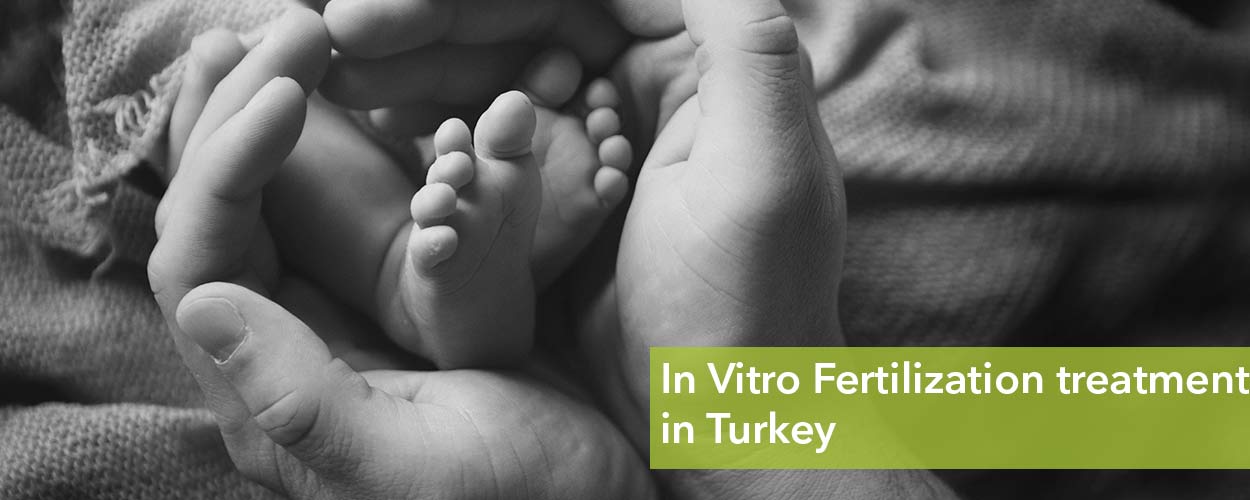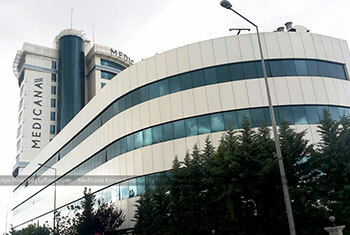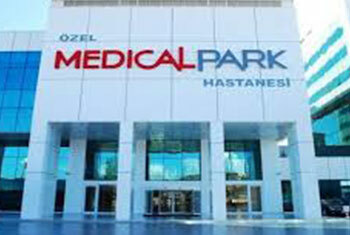What are the steps involved in IVF in Turkey?
Before an IVF cycle begins, patients undergo various screening tests and medical examinations to assess the eggs and sperm of the female and male partners.
Some tests involved in the pre-treatment phase include:
- Hormone evaluation – This includes tests to assess thyroid function and other hormone levels to rule out endocrinology-related conditions.
- Ovarian reserve test – This is to determine the quantity and quality of eggs of the woman partner. It involves testing the concentration of follicle-stimulating hormone (FSH), estradiol (estrogen) and anti-mullerian hormone in the blood. This is done during the first few days of the menstrual cycle. Results from these tests together with an ultrasound of the ovaries help the IVF specialist determine how well the ovaries will respond to fertility medication.
- Semen analysis – it might be done during the initial fertility evaluation or a semen sample might be taken and assessed before the start of an IVF treatment cycle.
- Screening for infectious disease – Both the partner will be screened for infectious diseases such as HIV and other sexually transmitted diseases.
- Uterine examination – The doctor will evaluate the inside of the uterus lining before starting the IVF procedure. It might include a sonohysterography, in which fluid is injected into the uterus through the cervix. The ultrasound images of the uterine cavity will help the doctor locate problems if any. Instead of this test, a hysteroscopy might be recommended. A hysteroscope is a thin, flexible telescope lighted at one end. It is inserted through the cervix into the uterus for imaging.
A practice embryo transfer might also be done by some doctors. In this mock embryo transfer, the doctor will assess the depth of the uterine cavity and determine the technique that will be the most suitable for embryos transfer into the uterus.
The basic steps in an IVF procedure include the following:
- Stimulation for maturation of follicles
- Collecting or retrieval of the eggs
- Collection of sperms sample
- Fertilization in the laboratory
- Embryo transfer
- Pregnancy test
There are mainly two protocols for IVF:
Factors such as the woman’s age, ovarian reserve, blood hormone levels and body mass index are considered while determining the appropriate treatment protocol and the dose of medication for patients who will receive in vitro fertilization therapy.
Long-term protocol: The medications for induction of ovulation functions for around 10 to 12 days. The second part of the treatment starts when the patient begins menstruating, and the hormone therapy is continued for 8 to 10 days on average. This is to ensure the maturation of eggs. After this, the eggs are picked up.
Short-term therapy protocols: In this, hormones for egg maturation starts from the second to third day of menstruation. The ovarian suppression hormones will be added to the treatment process within subsequent days to suppress the hormone secretion from the ovaries.
Blood hormone levels will be analyzed and the patients are monitored with vaginal ultrasound to keep a check on the follicles. When they reach the appropriate size, human chorionic gonadotropin is administered and eggs are picked up later on the same or the next day.
Ovulation stimulation
A drug, in the form of nasal spray or subcutaneous injection, will be given to the woman for about 2 weeks. This is to suppress the natural menstrual cycle and stimulate superovulation.
The fertility drugs usually contain the follicle-stimulating hormone (FSH), a luteinizing hormone (LH), or a combination of both. This fertility hormone induces the production of more eggs than usual (superovulation). Vaginal ultrasound might also be done to monitor the ovaries during the process.
Egg retrieval
After the superovulation process, the eggs will be collected through follicular aspiration, a minor surgical procedure. In this, a thin needle is inserted through the vagina and guided into an ovary. The needle is connected to a suction device that helps collect the eggs from the ovary.
This process is done for each ovary. Frozen or donated eggs may also be used for this process, as per the situation.
Sperm sample
After the collection of the eggs, the male partner will be asked to provide a sperm sample.
It can be retrieved through testicular biopsy or frozen sperm might be used.
Fertilization
The eggs and sperms are kept together in a petri dish and incubated in an environmentally controlled chamber. This would allow the sperm to penetrate the egg and fertilize it. Once fertilized, the egg will divide and develop into an embryo.
Some doctors may recommend a pre-implantation genetic diagnosis (PGD) at this point to screen an embryo for genetic disorders. However, this is not done everywhere or in every case.
Insemination can basically be done using two methods:
- Conventional insemination: In this method, a healthy sperm sample is mixed with the mature eggs and incubated overnight.
- Intracytoplasmic sperm injection (ICSI): During ICSI, a single sperm is directly injected into a mature egg. It is mostly used in the case of poor sperm quality or low quantity or if fertilization attempts in the prior IVF cycles have failed.
Assisted hatching is a technique in which a hole is made in the surrounding membrane, called zona pellucida just before the embryo transfer to help it hatch and implant.
This enables the embryo implantation into the lining of the uterus. Generally, after five to six days of fertilization, the embryo hatches or separates from the surrounding membrane.
It is commonly offered to older women or those who have a history of multiple failed IVF attempts. Assisted hatching can also be benefit couples who are using eggs or embryos that were previously frozen as it might harden the surrounding membrane.
Embryo transfer
One or more embryos are selected and transferred into the uterus of the woman. The doctor might also administer progesterone or human chorionic gonadotrophin (hCG) to help the lining of the uterus for receiving the embryo.
More than one embryo is placed in the womb to increase the chances of one successful implantation. The doctor will discuss the number of embryos to be transferred as well as the risks of the procedure with the couple during the consultation. Usually, transfer of more than one embryo is only done when no ideal embryos are available.
Embryos are transferred after 2 to 5 days from egg retrieval, and it is performed using a thin catheter and ultrasound guidance. The transfer involves using a thin tube called a catheter. It is inserted into the uterus through the vagina and retrieved when the embryo sticks to the lining of the womb.
The healthy embryo will begin to grow here. This is a pain-free procedure and doesn’t usually involve the use of general anesthesia. Patients are typically allowed to go home the same day following the embryo transfer.







